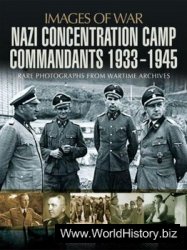The desire to see the new political experiment in democracy as a heritage from the ancient world is evident in the first history of the nation, Captain John Smith’s The Proceedings of the English Colonie in Virginia (1612), which adopted a 12-book structure from Vergil’s Aeneid, which ‘‘Aeneas-Smith’’ brought west to found a new land under divine guidance (Jones 1968: 25-6). Similarly Cotton Mather began the General Introduction to Magnalia Christi Americana (1702) with a direct
Imitation of the beginning of the Aeneid: ‘‘I write the Wonders of the Christian religion, flying from the Depravations of Europe, to the American Strand’ (Mather, Introduction, 1-2, p. 89).
The classical tradition appears in the names of the earliest colonies like ‘‘Virginia,’’ ‘‘Carolina,’’ and ‘‘Pennsylvania,’’ while the revolutionary fervor of the 1780s both there and in France resulted in any number of towns, north and south, being named after Athens, Troy, Rome, or Sparta (Highet 1949: 399-400). But the cultural and political differences between the regions are reflected in their use of the classical tradition.
The pioneers settling the North were essentially trying to escape the repressive and authoritarian structures and philosophy of England in order to found new and perfect communities along idealistic lines. Those who settled the South were largely trying to recreate the manorial system with themselves at the top ofthe ladder, which would have been impossible in England. The idealism ofthe North is reflected in its admiration of Plato from Mather through Emerson; in the South the practical Aristotle was the favorite natural and moral philosopher. Aristotle's authority had been weakened somewhat by the Renaissance and the Reformation, but he was still freighted with enough Catholic and medieval associations to make him suspect to Puritans. Of course, the Aristotle that many knew had been filtered through Cicero, the Stoics, Milton, Locke, Coke, and the British Whigs (Pocock 1975). Aristotle’s notion of the ‘‘natural slave,'' though not a classification based on race, was familiar in both the North and South and would come into sharp focus in the years running up to the Civil War. The Massachusetts Congregationalist clergyman John Wise is typical of those who in 1717 opposed Aristotle’s view of natural inequality, citing the Politics in paraphrase (‘‘Nothing is more suitable to Nature, than that those who excel in understanding and prudence should rule and control those who are less happy in those advantages'') (Wise 1956: 129). Southerners, on the other hand, further embraced Aristotle’s views on the classification of governments, the value of an antimajoritarian mixed government, and the rejection of the notion of a social contract and natural rights in favor of the organic state. Aristotle thought that nothing enters the mind except via the senses, while Platonic ideals, which Jefferson called a ‘‘mysticism incomprehensible to the modern mind,’’ were as unpalatable to Southerners as the independent Puritan ‘‘conscience,’’ the ‘‘inner light’’ of Quakers, the fiery mysticism of Jonathan Edwards, and the transcendental idealism of Emerson.
Though the early settlers were themselves uniquely well educated (between 1630 and 1690 the colonies of the northeast could boast as many university graduates as all of England), classics in the schools was a point of early contention. The largely selfeducated Puritans were initially skeptical of the value of classics as a university tradition too closely tied to the British establishment, while the Quaker educators of the Atlantic region thought classics was impractical. The religious revival known as the Great Awakening of 1740 developed strong anti-intellectualism, but in the middle of the eighteenth century, theologians relinquished the fight against classics to the utilitarians (Quakers began teaching the classics in the 1750s) and to those who sought a distinctly practical and American education, free from the excessive weight given Latin to the exclusion of other useful subjects. The low quality of instruction and the narrow expertise of the teachers (usually recent graduates awaiting their MA degrees and ordination) were always a counterargument to champions of the classics. Joseph Cogswell in 1819 bewailed the pitiful standard of teaching and preparation of the teachers: America has not ‘‘yet sent forth a single first rate scholar’’ (Cogswell 1819: 547). Defenders responded with efforts to reform the teaching profession, but noted the intrinsic value of learning the ancient languages for oratory, since the study of Greek and Latin produces examples illustrative of human conduct, mental discipline, logical thought, a trained memory, moral maxims, and argumentative structure. Moreover, ancient history itself had utilitarian value in that it taught the merits of republicanism, the need for civic virtue, the nobility of heroes, and the course of liberty, on the understanding that human nature is essentially uniform and that people behave similarly in similar circumstances, no matter the era.
Without regard to the arguments pro or con, most colleges followed the model of the earliest ones, Harvard (1636), William and Mary (1693), and Yale (1718), requiring matriculates to demonstrate a knowledge of Greek and Latin. In consequence, American grammar schools from the seventeenth through the later nineteenth centuries adopted a British curriculum whose appeal was not even countered by the unpleasantness of 1812. The wealthy continued to send their sons to Britain (Oxford or Edinburgh) for their university work, especially in the Anglophile South, where men like Charles Cotesworth Pinckney of Charleston (Westminster, Oxford) felt that a northern education was something to be feared.
Americans of the colonial and federal periods continued to encourage the study of the classics to acquire civic virtue of the kind lacking in the decadent monarchies of Europe, along with a concomitant hatred of tyranny. John Adams wrote his son John Quincy, ‘‘You will ever remember that the End of study is to make you a good Man and a useful Citizen’’ (Butterfield 1963-75: 4:117). Despite such formidable opponents of classical learning as Benjamin Franklin and Benjamin Rush, classics remained in the curriculum even after 1797, when the American Philosophical Society offered an award for the best proposal for reforming American education.
In America, as in Britain, whatever status a university education afforded was obtained by the study of the classics. For those of the middle class, like John Adams, George Whythe, or John Rutledge, facility in reading Cicero and Vergil, speaking and writing Latin prose, composing Latin verse, construing ordinary Greek as in the New Testament and Isocrates, and conjugating paradigms of Greek verbs was of necessity self-acquired. When John Adams despaired of learning Latin for his own advancement, his father offered him an alternative: Adams dug a ditch on his family’s property for two days before he decided that he preferred Latin. He then dug instead into the standard texts of the time, James Otis’s prosody and Ezekiel Che-ever’s grammar, and was admitted to Harvard. ‘‘If I have gained any distinction,’’ he said later in life, ‘‘it has been owing to the two days’ labor in that abominable ditch’’ (Chinard 1933: 11). The future senator Charles Sumner taught himself enough Latin to recognize a quotation in a speech by Daniel Webster and repeat it to his father. His father, impressed, then agreed to send him to Harvard. ‘‘I felt I too belonged to the brotherhood of scholars,’’ wrote Sumner (Taylor 2001: 28). Acceptance into the gentlemanly brotherhood was the reward for being driven through Cicero, Vergil, Homer, Xenophon, Isocrates, and the Greek New Testament, with tedious drills and often brutal corporal punishment by usually incompetent teachers. That the wisdom and beauty of the ancient authors stayed with many of the boys so powerfully and for so long is testimony that the inherent value of the works was not lost even on children.
No small element in preserving the classical tradition in colleges was the debating society. Combining the best and worst of fraternities with the competitive spirit of intramural athletics before either existed, the Whig and Cliosophic societies at Princeton, the Linonian Society and the Brothers in Unity at Yale, and other such groups directed into the debate arena the students’ drives both to bond and to compete. Their libraries were usually larger and more accessible than their colleges’, and contained many classical authors in translation, from whom the debaters learned the appropriate structure of a good rhetorical argument, the use of examples from ancient history and literature, and the principles of proof, all with an eye to success on the great day of the school year, the grand spring debates, the equivalent of today’s homecoming.




 World History
World History









